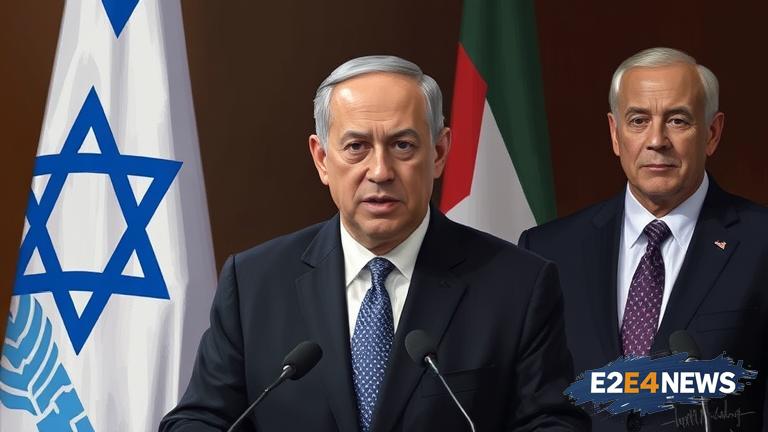The ongoing war in Gaza has sparked a heated debate among former Israeli security officials, with many calling for an immediate end to the conflict. These officials, who have extensive experience in Israel’s security establishment, are citing humanitarian concerns and strategic interests as the primary reasons for their stance. They argue that the war has resulted in significant human suffering, with thousands of civilians caught in the crossfire, and that a prolonged conflict will only exacerbate the situation. Furthermore, they believe that the war is not achieving its intended goals, and that a diplomatic solution is the only viable way to bring about a lasting peace. Prime Minister Netanyahu, however, has hinted at a new stage in the conflict, suggesting that Israel may be preparing to launch a fresh wave of attacks against Hamas. This has raised concerns among the international community, with many fearing that an escalation of the conflict could have disastrous consequences. The United Nations has called for an immediate ceasefire, and the European Union has urged both sides to engage in diplomatic talks. Despite these efforts, the conflict shows no signs of abating, with both Israel and Hamas dug in and refusing to back down. The humanitarian situation in Gaza is dire, with food and water shortages, and a lack of medical supplies. The international community is urging both sides to allow humanitarian aid to reach those in need, but so far, this has not been possible. The conflict has also had a significant impact on the Israeli economy, with many businesses forced to close due to the ongoing violence. The tourism industry, which is a significant contributor to Israel’s economy, has been particularly hard hit. The conflict has also raised concerns about the potential for a wider regional war, with many fearing that other countries in the Middle East could become embroiled in the conflict. The United States has been criticized for its response to the conflict, with many arguing that it has not done enough to pressure Israel to end the war. The US has traditionally been a strong supporter of Israel, but many are now questioning whether this support is unconditional. The conflict has also sparked a heated debate about the role of social media in modern warfare, with many arguing that it is being used to spread propaganda and misinformation. The Israeli government has been accused of using social media to manipulate public opinion, while Hamas has been accused of using it to spread hate speech and incite violence. The conflict has also raised concerns about the impact of war on civilians, particularly children. Many children in Gaza have been forced to flee their homes, and are now living in makeshift refugee camps. The psychological impact of the conflict on these children is likely to be significant, and many are calling for increased support to help them cope with the trauma they have experienced. The conflict has also sparked a debate about the role of international law in regulating warfare, with many arguing that Israel’s actions in Gaza are in breach of international humanitarian law. The Israeli government has rejected these claims, arguing that it is acting in accordance with international law. The conflict is likely to continue for some time, with both sides refusing to back down. The international community is urging both sides to engage in diplomatic talks, but so far, this has not been possible. The humanitarian situation in Gaza is likely to continue to deteriorate, and the conflict is likely to have a significant impact on the region as a whole.





